Toyin Falola
A Reception in honor of Professor Doyin Aguoru, March. 19, 2025
https://www.flickr.com/photos/toyinfalola/albums/72177720324546919/
It was a lovely evening with Professor Doyin Aguoru in the company of her friends in Ibadan on March 19, 2025.
In the annals of Yorùbá history, the knowledge one finds there is practically inexhaustible. Everything they do, including things that are not primarily dedicated to knowledge, holds the possibility of sharing ideas and wisdom only when one pays very close attention to them. To the Yorùbá people, getting knowledge is fundamental because it is knowledge that you use in building your home, the family unit, groups, and then a society. When we say knowledge, we use it very deliberately because sometimes people often believe that wisdom trumps knowledge, and that anyone with wisdom can have a better and more exciting life experience than those who do not.
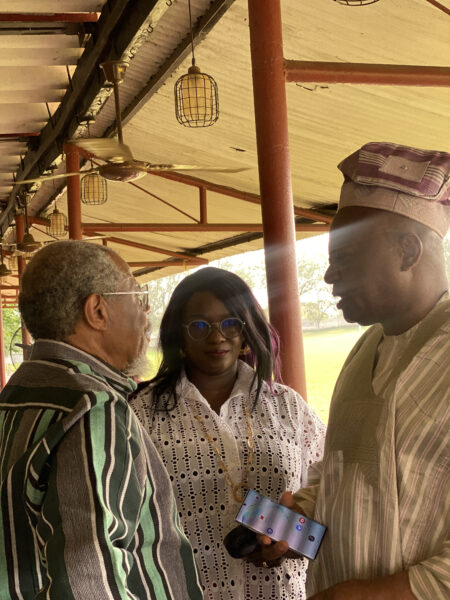
In my experience, I have come to accept that knowledge encapsulates its other kindreds, such as wisdom and quality intellection. Conventionally, knowledge comes from information, and they can even be used interchangeably. One would wonder where I am going with this opening, but the basis of my conversation is that it is the adherence of formerly Dr Doyin Aguoru that transforms her into a full-blown Professor Aguoru today in one of the most prestigious universities in Africa, the University of Ibadan, Nigeria. As referenced above, the history of Yorùbá remains admirable, and I find particularly enthusing their folkloric resources, because it houses knowledge that is beneficial to humans and useful for the organization of their events. In what would be exposed soon, Professor Aguoru has been an observer and even a custodian of Yorùbá’s fundamental ideals, and her perseverance and commitment underscore that. I chose to explain that below.
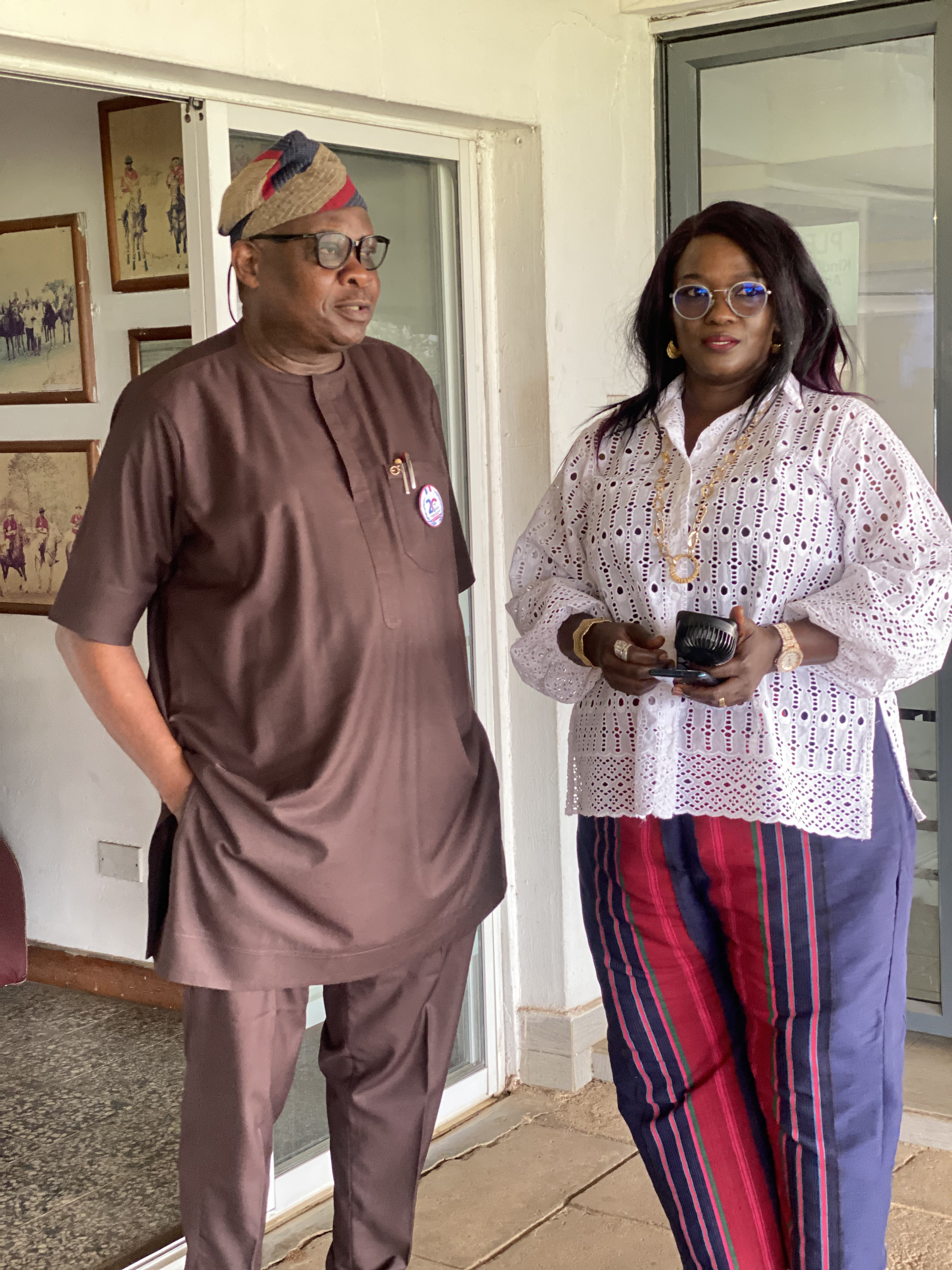
In many folklores of the Yorùbá people, one character remains constant in their employment. Tortoise takes the front seat in the narratological adventure of Yorùbá folklores, and for that reason, it has earned itself different forms of names and various layers of integrity to the people. To some, it is a lazy leech that profits off other people’s sweat, and to many others, it is the precocious character that understands the contexts of things, using the power of its intellect. I have invoked the character of a tortoise here in the sense that the animal uses its precocious mind to achieve very daunting tasks. I remember clearly when Grandma told us about how the tortoise and the rabbit race for trophies, and the knowledge frozen in that narrative emphasizes the application of one’s wisdom in difficult situations. The rabbit thinks that by virtue of its ability to sprint so cleverly, it can outrun the tortoise who he believes is incapable of matching the ability he has.
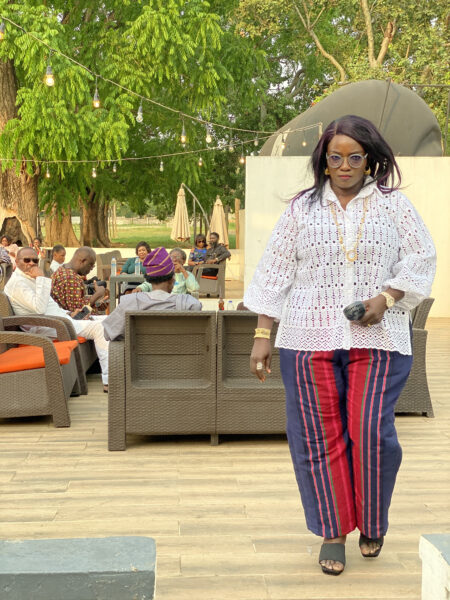
Meanwhile, the tortoise believes that information is power, contrary to the opinion of the rabbit that one’s biological attributes can facilitate one’s victories in life. Without afterthought, the rabbit challenges the tortoise to a race, thinking that it would humiliate the humble tortoise. Knowing that individuals must stamp their authority and protect their integrity, the tortoise does not shy away, just like Aguoru did not shy away from rigorous academic engagements. The tortoise broke down his activities and became overly consistent. Having run less than a mile, the rabbit decided to take a nap, believing erroneously that even if he slept, the tortoise could not outrun him. In the end, he loses the race to the persistent tortoise.
The knowledge from this narrative is overwhelming because it emphasizes consistency and confidence, telling humans that no goal is unachievable when we put our minds to it. I am certain that the hurdles that this Professor has crossed can only be imagined because not only does the attainment of that position require relentless efforts, but it also demands undivided attention. It should be reiterated that Professor Aguoru is one with an intellectual identity; I mean she has carved for herself a niche that is there for reference for a long time to come. She stands on a long tradition of people who are making impressive efforts towards the re-contextualization of African knowledge to accommodate the nuances of politics, power, culture and social identity. Many people often accept for a fact that feminism is needed more in the continent over the assumption that Africa is populated by weak thinkers who are cognitively challenged to organize themselves and their society. Scholars like Aguoru have made great efforts to debunk such claims and correct notions that are not firmly rooted in recorded history. For instance, she has consistently argued that the problems ravaging a number of African countries today are closely linked to the colonial history that dots the people’s trajectory of growth for centuries. It is often the case that people make unsubstantiated claims that Africans are repressing the voices of their females, and for that reason, they need a messiah to stop them in their tracks. This claim is what prompted the feminist struggles.
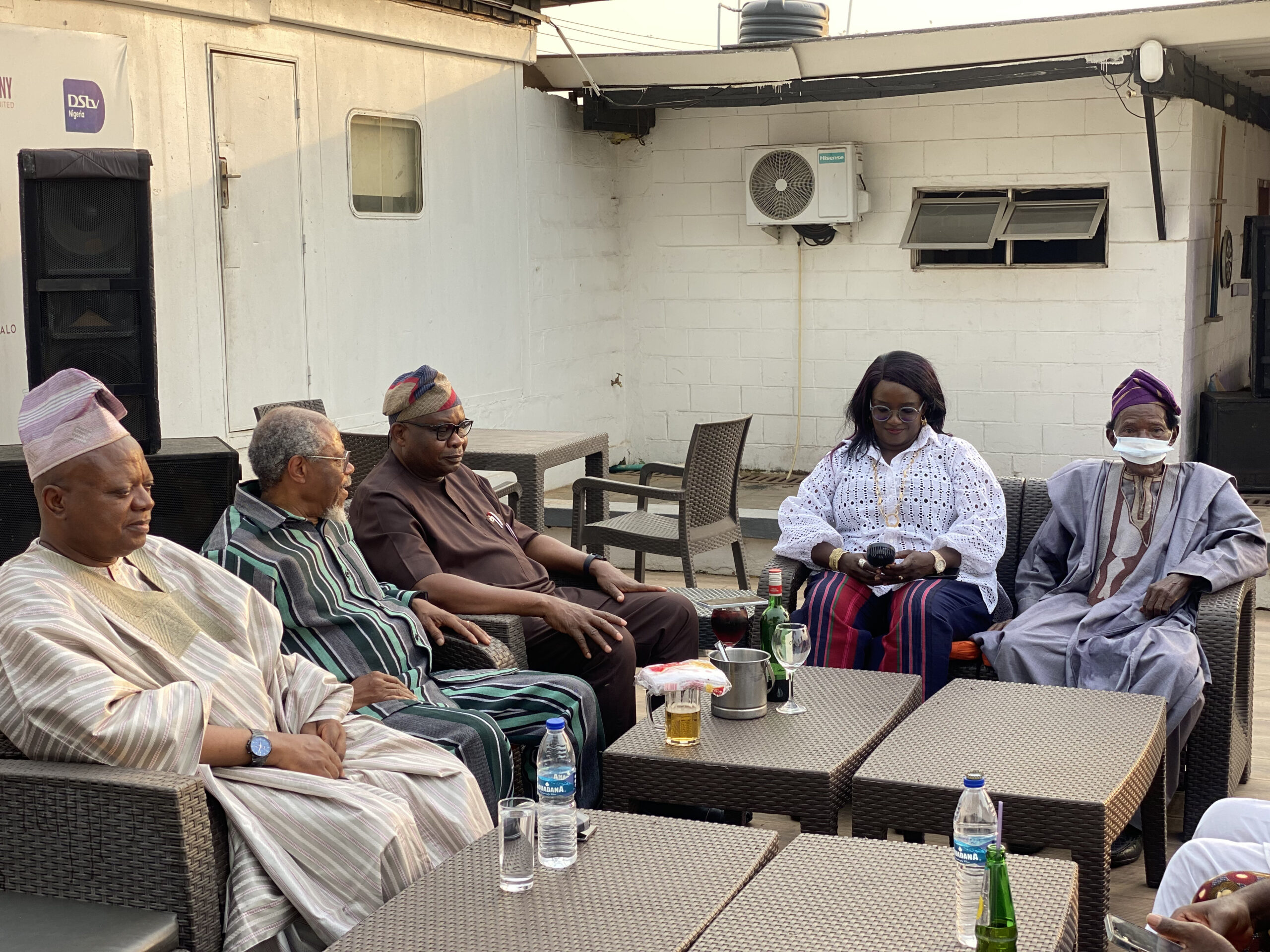
This scholar is aware that for anyone to successfully and effectively combat the hydra-headed issue of gender inequity that is consuming the continent, they would have to situate the problem within the appropriate context so that necessary mechanisms would be put in place. She has argued that precolonial African history does not have many instances of gender disparity among them as females were held in high esteem and played very significant roles in helping society advance in their engagements. Women held important political offices, as they participated actively in the formation of policies that were used in their various societies. Notable women in the financial landscape in African history point to how they were also determinants of their economic structures across many African countries. Colonial imperialists changed this practice by their perennial dissociation of African women in matters concerning the affairs of the public and their safety. This culminated into a common behaviour that was eventually institutionalized, being that the attitude demonstrated while in the corridor of power is capable of being frozen as the newly acceptable norms. Today, there is a widespread awareness that such poor treatment of women folks should be boldly discouraged not only because it undermines the importance of African women in their various societies but also because it restricts their ability to flourish as they would have wanted.
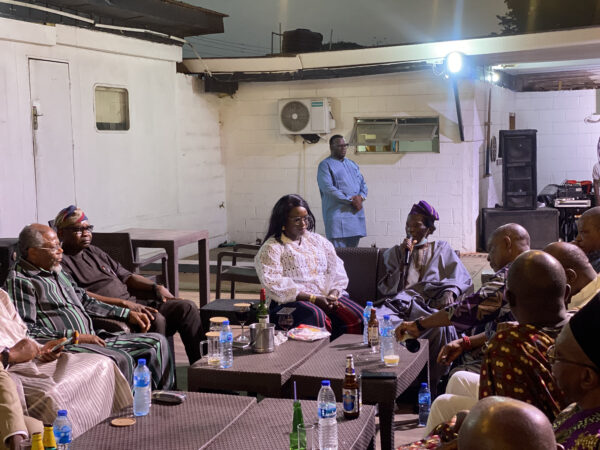
I am particularly elated that Aguoru’s light shines in my own time because she has demonstrated that she can dedicate her energy to the course of true intellectual emancipation. I speak of decolonization when I mention this attribute of hers. It is both rewarding and even enthusiastic that Professor Aguoru is a powerful voice in the decolonization struggles. I am aware that her understanding of globalization and its works have turned into a strength which she will continue to use advantageously in the academic world. One must understand that globalization of everything remains the game changer in contemporary times, but such accomplishment is also underlined by numerous things which should be deconstructed. The effort of such deconstruction has been noted in the writings of Aguoru, who emphasizes that globalization seeks to extend the hegemony of the West at the detriment of alternative voices, all of which would have made impressive contributions to the human family. She argues, in most cases, that the Global North countries are making tremendous progress in reshaping the world to some extent and states categorically that such advancement and progress should not be weaponized to put Africans into a permanent state of helplessness where they can’t make generational marks. The crux of her argument is that the world would reap innumerable benefits in a situation where multiple perspectives are not institutionally phased out.

In any case, I celebrate you, Professor Aguoru, not only for bagging this professorial appointment but also for the fact that you have continued to touch lives positively. You have remained exceedingly useful for the generations of yours and the one coming after for your mentoring and coaching to these younger ones has been nothing short of transcendental. I have encountered situations where students sing your praises and that would not have come without you impacting them positively. An expansive category of intellectuals also believes that you have exceptional candour in handling the most difficult situations, showing that you are not only intellectually sound but that you are very humane in what you do. I have chosen to use this medium to make you understand how important you are to academia globally and simultaneously use the opportunity to remind you of the immense responsibility that lies on your shoulders, having attained this academic height. Becoming a professor, while it signals that you are growing intellectually, comes with a barrage of activities that are considered heavenly. It is a position that ordinarily allows you to invest in people’s lives without any hope of being repaid, but God has a way of rewarding such efforts, and I believe that you would attain that grace, too. Congratulations Prof.
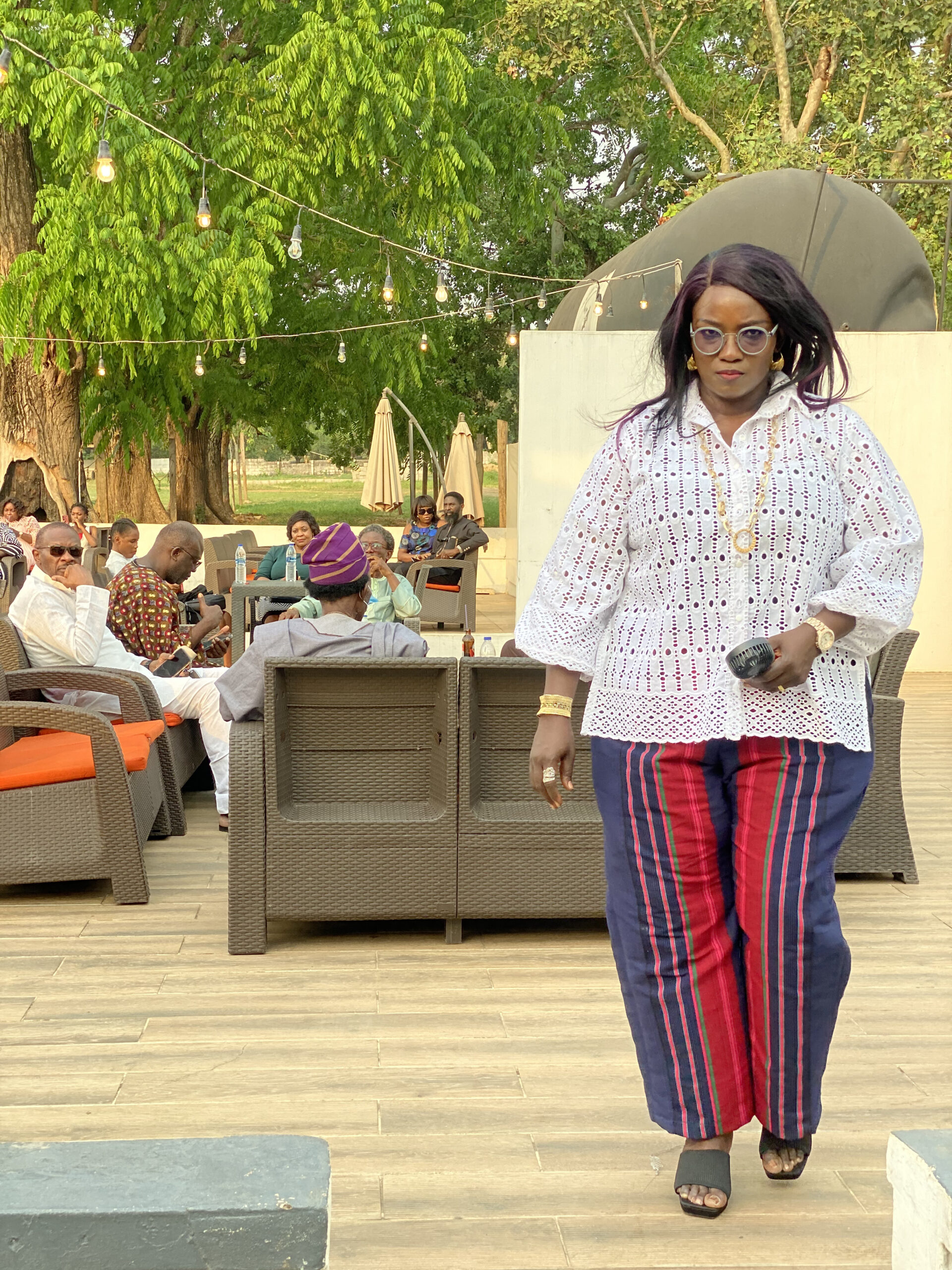
This is great! Hearty congratulations, Prof, once again.
This is great! This is very inspiring. Hearty congratulations, Prof, once again.
Congratulations, Prof.
“I am particularly elated that Aguoru’s light shines in my own time because she has demonstrated that she can dedicate her energy to the course of true intellectual emancipation..” TF
I can’t agree more. Thanks for honoring her. This is putting the right peg in the right hole. May her tribe continue among us!
I have just recently met her, yet her intellectual presence and depth has become very impactful